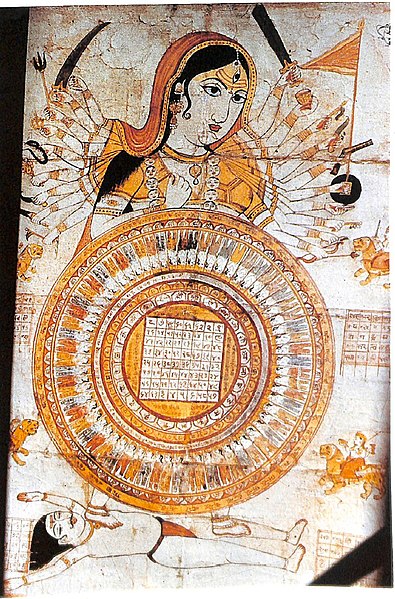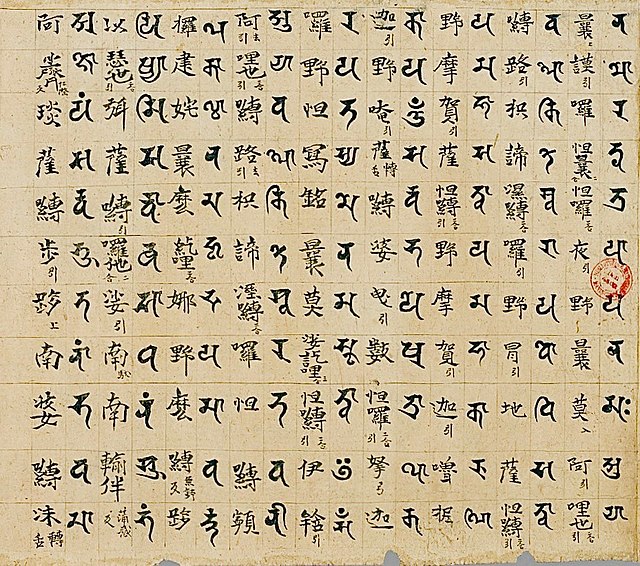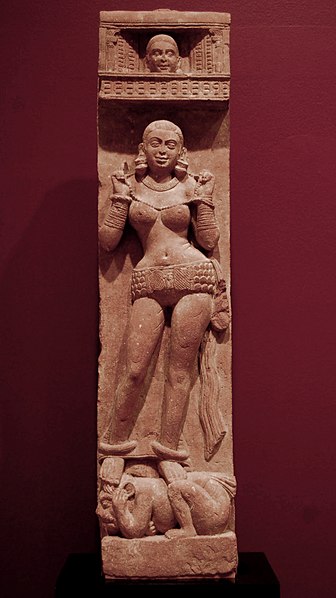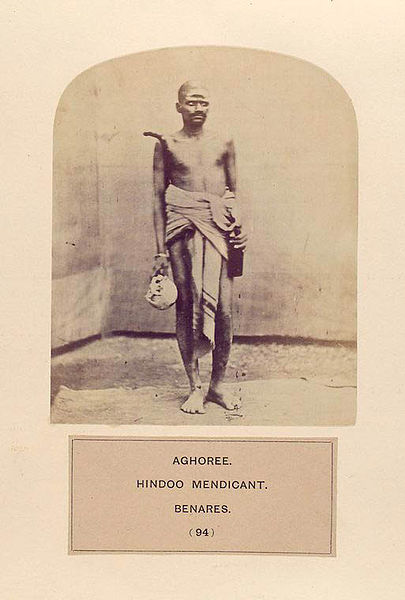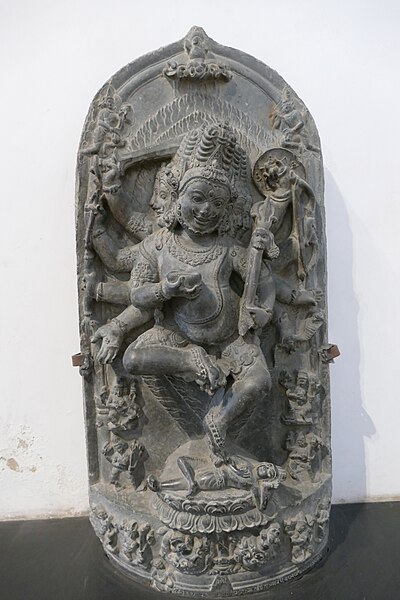A yogini is a female master practitioner of tantra and yoga, as well as a formal term of respect for female Hindu or Buddhist spiritual teachers in the Indian subcontinent, Southeast Asia and Greater Tibet. The term is the feminine Sanskrit word of the masculine yogi, while the term "yogin" IPA: [ˈjoːɡɪn] is used in neutral, masculine or feminine sense.
Yogini, 10th century Chola dynasty, Tamil Nadu, India. From the Smithsonian Institution.
Devi Yogini, Tibet 9th century
Cloth painting of Devi with a superimposed Yogini Chakra, wheel of the 64 Yoginis. Rajasthan, 19th century.
Nath yoginis Rajasthan 17th century
Tantra is an esoteric yogic tradition that developed on the Indian subcontinent from the middle of the 1st millennium CE onwards in both Hinduism and Buddhism.
A Buddhist dhāraṇī (incantation), the Nilaṇṭhanāmahṛdaya dhāraṇī, in Siddham Script with Chinese transliteration
Kushan sculpture of a yakṣiṇī (2nd century), Mathura region
A modern aghori with a skull-cup (Kapala). Their predecessors, the medieval Kapalikas ("Skull-men") were influential figures in the development of transgressive or "left hand" Shaiva tantra.
Dancing Bhairava in the Indian Museum, Kolkata



